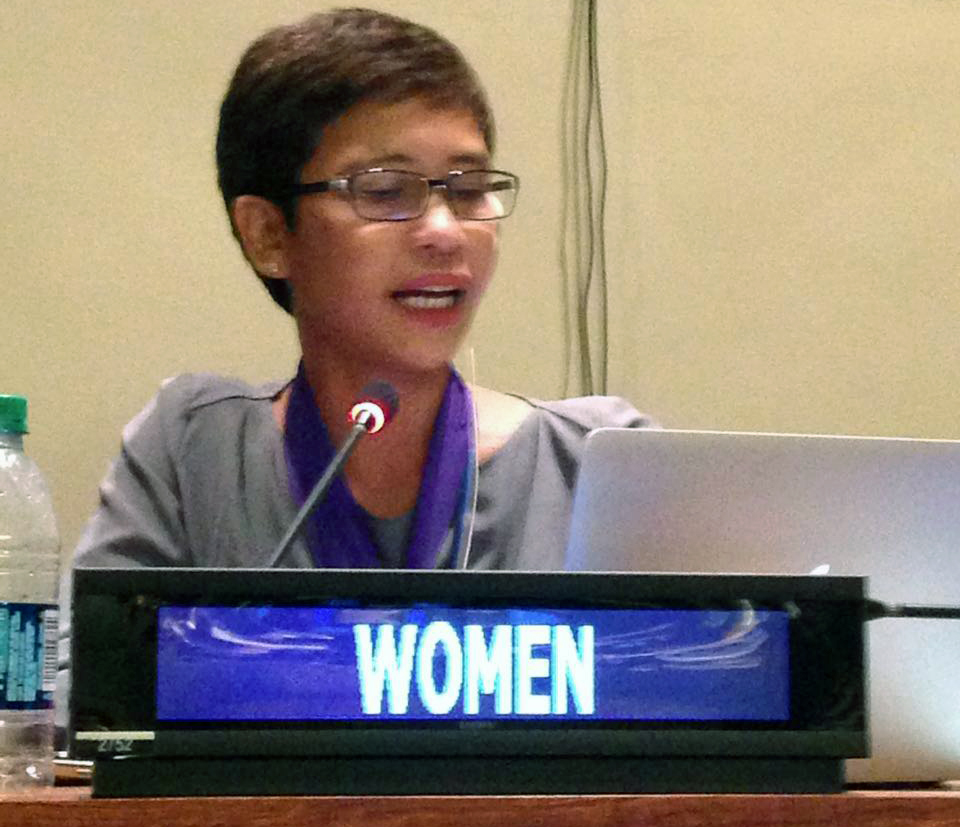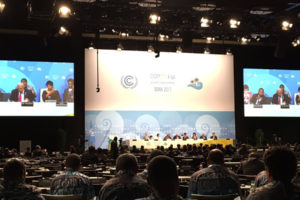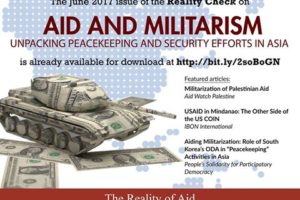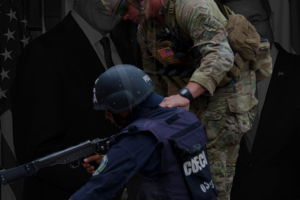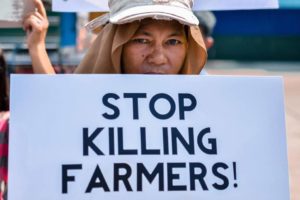Lei Covero of IBON International did an intervention in behalf of the Women's Major Group at a UN official meeting titled "Challenges in mobilizing means of implementation at the national level – Financing, Technology, Capacity Building" last 13 July 2016. The meeting is part of the High Level Political Forum on Sustainable Development, which is the UN central platform for the follow-up and review of the 2030 Agenda for Sustainable Development and Sustainable Development Goals.
[[{“type”:”media”,”view_mode”:”media_large”,”fid”:”1510″,”attributes”:{“alt”:””,”class”:”media-image”,”height”:”414″,”style”:”width: 240px; height: 207px; border-width: 1px; border-style: solid; margin: 1px;”,”typeof”:”foaf:Image”,”width”:”480″}}]]
Below is the full text of her intervention.
Good afternoon. I am Lorelei Covero of IBON International and Asia Pacific Regional CSO Engagement Mechanism, speaking on behalf of the Women Major Group.
I would like to point first of all that science, technology and innovation, albeit a very crucial tool, is only one aspect of MOI to achieve the SDGs. Transfer of technologies and increased funding for STI – howsoever welcome and even necessary – will not solve the poverty experienced by farmers and workers, nor ameliorate the condition of majority of the world's women whose labour is not counted. Landlessness, starvation wages, flexibilization and contractualization of labour, and the gendered burdens of unwaged work in reproducing everyday life need to be acknowledged as deeply rooted systemic barriers to development.
Having said that…
The MOI goal and targets are integral to realising women’s human rights, and can spell the difference between success and failure of the SDGs. A shortage of financing could, for example, mean that essential services and infrastructure that women rely on to reduce their unpaid care burden and access to healthcare are not funded. Whether those resources are provided through public, private, or public-private partnerships can also have a considerable impact on the accessibility, affordability and quality of essential services.
Decisions around financing, revenue and trade are not only decisions about revenue and growth. They are also decisions about the value of our shared commons, about wealth distribution and about the obligation to ensure economic policies & advance human rights.
Taxes on harmful industries and practices, like speculative financial transactions, military and arms trading, carbon emissions, and extractive industries, can provide means of implementation, support reductions in inequality, and limit practices that undermine sustainable development. While regressive taxes on goods and services, failure to prevent tax avoidance and evasion, trade mispricing and a failure to regulate and tax corporations exacerbates inequalities and reduces state capacity for sustainable development investment.
Mobilization of the MOI for sustainable development is an immense challenge, especially for underdeveloped countries. In the first place, the economies of these countries are NOT ORIENTED towards sustainable development, but to: 1) servicing crippling external debt – usually; 2) unequal trade: where raw materials, natural & human resources are exported at rock bottom-prices to developed countries to the detriment of nature and our people; 3) dependence on expensive imports from developed countries for basic & consumer goods.
Emerging trends such as: Mega trade deals like the TPPA (Transpacific Partnership Agreement), will not only worsen unequal trade between developed & developing countries but will also disrespect national sovereignty and increase corporate power through the ISDS (Investor State Dispute Settlement).
The PPPs (Public private partnerships) especially in developing countries have had severe ramifications on issues of equity and access, especially for the poor and marginalised. PPPs have likewise facilitated human rights abuses, including land grabs and displacement of indigenous peoples, rural and urban communities.
In this context, how can developing countries mobilise resources for sustainable development, when MOI is MIA?
